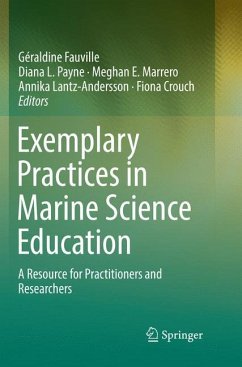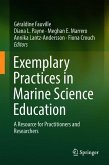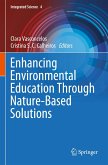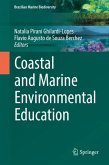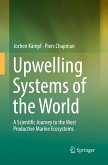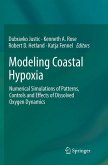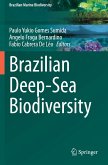Exemplary Practices in Marine Science Education
A Resource for Practitioners and Researchers
Herausgegeben:Fauville, Géraldine; Payne, Diana L.; Marrero, Meghan E.; Lantz-Andersson, Annika; Crouch, Fiona
Exemplary Practices in Marine Science Education
A Resource for Practitioners and Researchers
Herausgegeben:Fauville, Géraldine; Payne, Diana L.; Marrero, Meghan E.; Lantz-Andersson, Annika; Crouch, Fiona
- Broschiertes Buch
- Merkliste
- Auf die Merkliste
- Bewerten Bewerten
- Teilen
- Produkt teilen
- Produkterinnerung
- Produkterinnerung
This edited volume is the premier book dedicated exclusively to marine science education and improving ocean literacy, aiming to showcase exemplary practices in marine science education and educational research in this field on a global scale. It informs, inspires, and provides an intellectual forum for practitioners and researchers in this particular context. Subject areas include sections on marine science education in formal, informal and community settings. This book will be useful to marine science education practitioners (e.g. formal and informal educators) and researchers (both education and science).…mehr
Andere Kunden interessierten sich auch für
![Exemplary Practices in Marine Science Education Exemplary Practices in Marine Science Education]() Exemplary Practices in Marine Science Education121,99 €
Exemplary Practices in Marine Science Education121,99 €![Enhancing Environmental Education Through Nature-Based Solutions Enhancing Environmental Education Through Nature-Based Solutions]() Enhancing Environmental Education Through Nature-Based Solutions132,99 €
Enhancing Environmental Education Through Nature-Based Solutions132,99 €![Enhancing Environmental Education Through Nature-Based Solutions Enhancing Environmental Education Through Nature-Based Solutions]() Enhancing Environmental Education Through Nature-Based Solutions132,99 €
Enhancing Environmental Education Through Nature-Based Solutions132,99 €![Coastal and Marine Environmental Education Coastal and Marine Environmental Education]() Coastal and Marine Environmental Education81,99 €
Coastal and Marine Environmental Education81,99 €![Upwelling Systems of the World Upwelling Systems of the World]() Jochen KämpfUpwelling Systems of the World137,99 €
Jochen KämpfUpwelling Systems of the World137,99 €![Modeling Coastal Hypoxia Modeling Coastal Hypoxia]() Modeling Coastal Hypoxia235,39 €
Modeling Coastal Hypoxia235,39 €![Brazilian Deep-Sea Biodiversity Brazilian Deep-Sea Biodiversity]() Brazilian Deep-Sea Biodiversity74,99 €
Brazilian Deep-Sea Biodiversity74,99 €-
-
-
This edited volume is the premier book dedicated exclusively to marine science education and improving ocean literacy, aiming to showcase exemplary practices in marine science education and educational research in this field on a global scale. It informs, inspires, and provides an intellectual forum for practitioners and researchers in this particular context. Subject areas include sections on marine science education in formal, informal and community settings. This book will be useful to marine science education practitioners (e.g. formal and informal educators) and researchers (both education and science).
Produktdetails
- Produktdetails
- Verlag: Springer / Springer International Publishing / Springer, Berlin
- Artikelnr. des Verlages: 978-3-030-08097-6
- Softcover reprint of the original 1st ed. 2019
- Seitenzahl: 480
- Erscheinungstermin: 19. Januar 2019
- Englisch
- Abmessung: 235mm x 155mm x 26mm
- Gewicht: 730g
- ISBN-13: 9783030080976
- ISBN-10: 3030080978
- Artikelnr.: 56999043
- Herstellerkennzeichnung Die Herstellerinformationen sind derzeit nicht verfügbar.
- Verlag: Springer / Springer International Publishing / Springer, Berlin
- Artikelnr. des Verlages: 978-3-030-08097-6
- Softcover reprint of the original 1st ed. 2019
- Seitenzahl: 480
- Erscheinungstermin: 19. Januar 2019
- Englisch
- Abmessung: 235mm x 155mm x 26mm
- Gewicht: 730g
- ISBN-13: 9783030080976
- ISBN-10: 3030080978
- Artikelnr.: 56999043
- Herstellerkennzeichnung Die Herstellerinformationen sind derzeit nicht verfügbar.
Géraldine Fauville Department of Education, Communication and Learning, University of Gothenburg, Sweden, Gothenburg, Sweden Diana L. Payne University of Connecticut, Connecticut Sea Grant, Groton, CT USA Meghan E. Marrero Mercy College, Dobbs Ferry, Y, USA Annika Lantz--¿Andersson University of Gothenburg, Department of Education Communication and Learning, Göteborg, Sweden Fiona Crouch Marine Biological Association, Plymouth, Devon, UK
1. Ocean Literacy in the 21st Century.- 2. An Exemplar Model for Expanding Development Reach.- Part I Research.- 3. ¡Youth & the Ocean! (¡YO!): Partnering High School and Graduate Students for Youth-Driven Research Experiences.- 4. Leveraging Parent Chaperones to Support Youths' Learning During an Out-of-School Field Trip to a Marine Science Field Station.- 5. Systematic and Longitudinal Research to Support and Improve the National Ocean Sciences Bowl: Finding from Seventeen Years of Study.- 6. Leveraging Ocean Identity in Education to Impact Students' Conservation Practices.- 7. Evaluating Differences in Outcomes and Participant Perspectives in Marine Science Professional Development Conducted by Informal Educators Compared to Specialized University Faculty.- 8. Implementing Ocean Literacy through the Bond of Informal and Formal Education.- 9. Evaluating Ocean Learning - The Principles and Practicalities of Evaluating Formal Education Audiences in an Informal Education Environment.- 10. Effective Practices for Fostering Empathy towards Marine Life.- Part II Practitioner.- 11. Creating Marine Outreach Programmes that Work - The Marine Institute Explorers Education Programme(TM).- 12. Marine Education through Cooperation: A Case Study of Opportunity in a Remote School in Taiwan.- 13. Educating with Data.- 14. Using International School Partnerships to Promote Ocean Literacy.- 15. Out of the Tower and into the Classroom: Marine Science Graduate Students as K-12 Classroom Contributors.- 16. The VIRTUE Project and the Biofilms and Biodiversity Project: An International Collaboration in Marine Science Education.- 17. Integrating Ocean Literacy in UK Curriculum-Led Field Courses.- 18. Building Capacity for Meaningful Watershed Educational Experiences.- 19. Going with/against the Flow: The Challenges of an Authentic Marine Science Education.- 20. Bring the Ocean to the Classroom - Introducing Experimental Studies to Teachers with Fair or no Science Knowledge.- 21. Closer to Blue.- 22. The Two Bays Project: A Model for Providing Multidisciplinary Approaches to Monitoring, Education, Engagement and Partnership Building.- 23. Citizen Science to Engage and Empower Youth in Marine Science.- 24. Empowering Young Ocean Conservationists.
1. Ocean Literacy in the 21st Century.- 2. An Exemplar Model for Expanding Development Reach.- Part I Research.- 3. ¡Youth & the Ocean! (¡YO!): Partnering High School and Graduate Students for Youth-Driven Research Experiences.- 4. Leveraging Parent Chaperones to Support Youths' Learning During an Out-of-School Field Trip to a Marine Science Field Station.- 5. Systematic and Longitudinal Research to Support and Improve the National Ocean Sciences Bowl: Finding from Seventeen Years of Study.- 6. Leveraging Ocean Identity in Education to Impact Students' Conservation Practices.- 7. Evaluating Differences in Outcomes and Participant Perspectives in Marine Science Professional Development Conducted by Informal Educators Compared to Specialized University Faculty.- 8. Implementing Ocean Literacy through the Bond of Informal and Formal Education.- 9. Evaluating Ocean Learning - The Principles and Practicalities of Evaluating Formal Education Audiences in an Informal Education Environment.- 10. Effective Practices for Fostering Empathy towards Marine Life.- Part II Practitioner.- 11. Creating Marine Outreach Programmes that Work - The Marine Institute Explorers Education Programme(TM).- 12. Marine Education through Cooperation: A Case Study of Opportunity in a Remote School in Taiwan.- 13. Educating with Data.- 14. Using International School Partnerships to Promote Ocean Literacy.- 15. Out of the Tower and into the Classroom: Marine Science Graduate Students as K-12 Classroom Contributors.- 16. The VIRTUE Project and the Biofilms and Biodiversity Project: An International Collaboration in Marine Science Education.- 17. Integrating Ocean Literacy in UK Curriculum-Led Field Courses.- 18. Building Capacity for Meaningful Watershed Educational Experiences.- 19. Going with/against the Flow: The Challenges of an Authentic Marine Science Education.- 20. Bring the Ocean to the Classroom - Introducing Experimental Studies to Teachers with Fair or no Science Knowledge.- 21. Closer to Blue.- 22. The Two Bays Project: A Model for Providing Multidisciplinary Approaches to Monitoring, Education, Engagement and Partnership Building.- 23. Citizen Science to Engage and Empower Youth in Marine Science.- 24. Empowering Young Ocean Conservationists.

